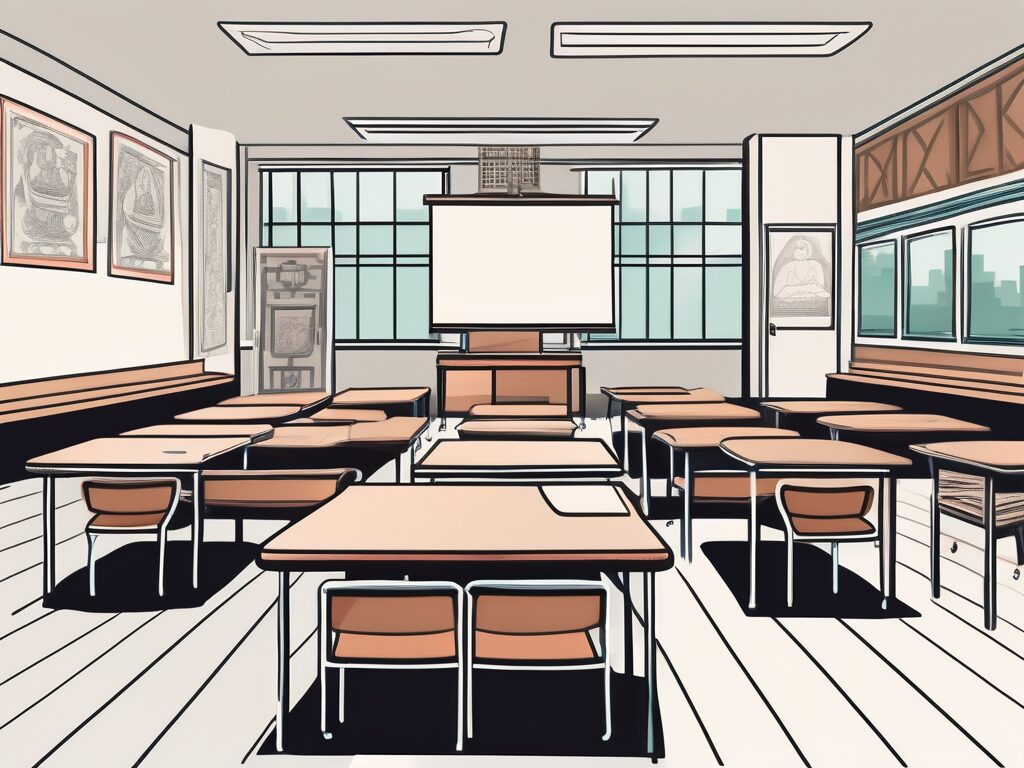In the bustling city of Bangkok, the education sector is constantly evolving. With a diverse student population and a dynamic learning environment, educators are always on the lookout for innovative ways to engage their students. But what exactly does student engagement look like in the Thai capital? Let’s delve into some of the most effective techniques being used in Bangkok’s classrooms today.
Embracing Technology
Technology plays a pivotal role in modern education, and Bangkok is no exception. The city’s schools are harnessing the power of digital tools to foster student engagement. Think of it as swapping a traditional blackboard for an interactive whiteboard. It’s the same concept, but with a modern twist.
One popular tool is the Learning Management System (LMS), a digital platform that allows teachers to create, distribute, and track assignments. It’s like having a virtual classroom at your fingertips. Another is the use of interactive apps, which can turn a mundane lesson into a fun and engaging activity. Imagine learning maths through a game, rather than a textbook. It’s a simple switch, but one that can make a world of difference to a student’s engagement levels.
Virtual Reality (VR) in Education
Virtual Reality (VR) is another technology making waves in Bangkok’s education scene. By immersing students in a 3D environment, VR can bring lessons to life in a way that textbooks simply can’t. It’s like taking a field trip without leaving the classroom.
For instance, a history lesson on ancient Egypt can become a virtual tour of the pyramids. A biology class can transform into a journey through the human body. The possibilities are endless, and the impact on student engagement is profound.
Project-Based Learning
Project-based learning is another effective technique being used in Bangkok. This approach encourages students to learn by doing, rather than by listening. It’s like cooking a meal from scratch, rather than following a recipe. The result is a deeper understanding and a more engaged learning experience.
Projects can range from creating a business plan to designing a sustainable city. The key is to align the project with the curriculum, while also allowing students the freedom to explore their interests. This balance between structure and creativity is what makes project-based learning so effective.
The Role of Collaboration
Collaboration is a crucial component of project-based learning. By working together, students can learn from each other, challenge each other, and support each other. It’s like being part of a football team, where every player has a role to play and every player contributes to the team’s success.
Collaboration also helps to develop essential skills such as communication, problem-solving, and leadership. These are skills that go beyond the classroom, preparing students for the real world.
Experiential Learning
Experiential learning is another technique gaining traction in Bangkok. This approach involves learning through experience, or ‘learning by doing’. It’s like learning to ride a bike. You can read about it, watch videos, and listen to instructions, but you only really learn when you get on the bike and start pedalling.
Experiential learning can take many forms, from internships and field trips to simulations and role-plays. The key is to provide students with real-world experiences that are relevant to their studies. This not only enhances their understanding of the subject matter, but also increases their engagement and motivation.
Outdoor Education
Outdoor education is a form of experiential learning that is particularly popular in Bangkok, thanks to the city’s tropical climate and rich cultural heritage. This could involve anything from a nature walk to a visit to a local museum. It’s like turning the city into a classroom, with every street and every building offering a potential learning opportunity.
Outdoor education not only breaks the monotony of classroom learning, but also allows students to connect with their environment in a meaningful way. This connection can spark curiosity, inspire creativity, and foster a love of learning.
Conclusion
From technology and project-based learning to experiential learning, Bangkok’s educators are using a range of techniques to engage their students. These techniques are not just about making learning fun, but about making it meaningful. After all, an engaged student is a learning student.
So, whether you’re an educator looking for inspiration, or a student looking for a dynamic learning experience, Bangkok’s education scene has something to offer. And with the city’s commitment to innovation and creativity, the future of education in Bangkok looks brighter than ever.
Elevate Your Teaching Career with IPGCE
As you explore the innovative student engagement techniques in Bangkok, consider taking your teaching career to the next level with IPGCE. Our International Postgraduate Certificate in Education is designed to enhance your qualifications, increase your chances of landing international school positions, and provide you with the tools to thrive in a global educational environment. Join a vibrant professional community, gain a deeper understanding of international curricula, and enjoy the flexibility of balancing professional development with your current commitments. Don’t let barriers hold you back—become part of the success story and see your career soar. Join the UK’s #1 Teacher Training Course today and unlock your full potential as an educator.

